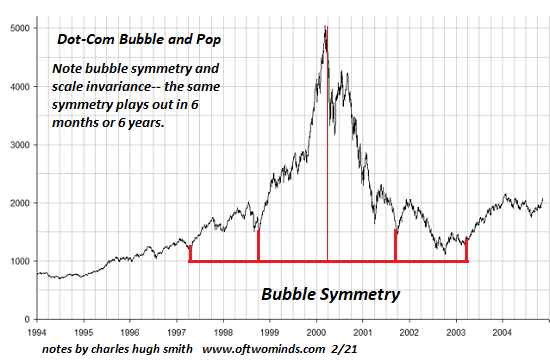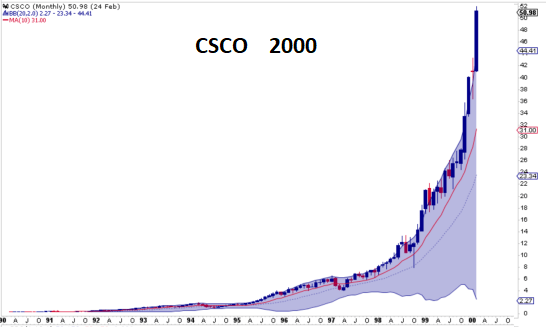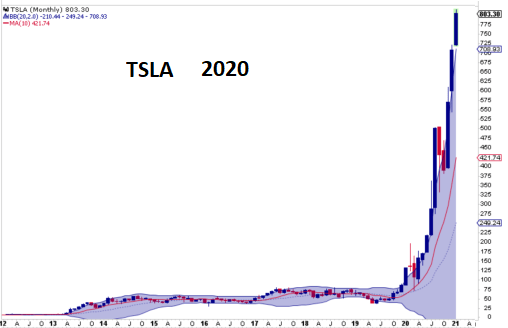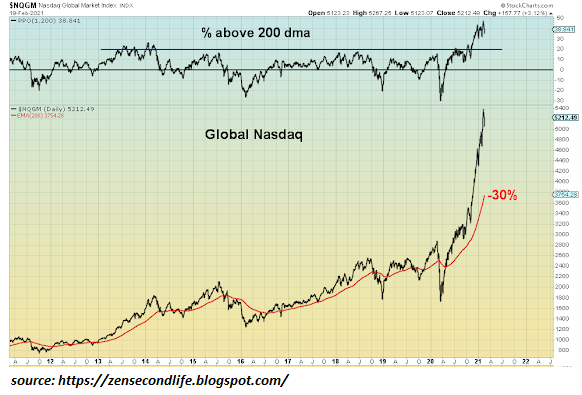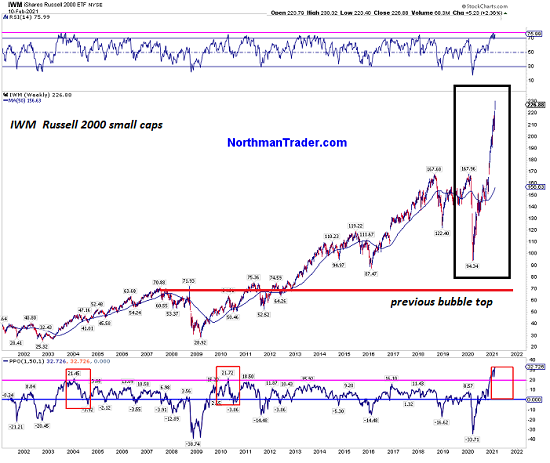This article was originally published by Charles Hugh Smith at Of Two Minds Blog.
Needless to say, few are expecting bubble symmetry to manifest now, because, well, of course, “this time it’s different.” Indeed. It’s always different and yet always the same, too.
Let’s indulge in some basic logic:
1. All speculative bubbles pop, regardless of source, time, or place. (100% of all historical evidence supports this.)
2. The current “Everything Bubble” is a speculative bubble.
3. Therefore the current speculative bubble will pop.
Now that we got that out of the way, the question becomes: how will the crash play out? There is no way to forecast precisely when or how the current speculative bubble will crash, but history offers a few potential templates.
The dot-com bubble offers a classic example of bubble symmetry and scale invariance. (See chart below.) Note how the bubble arose in two legs of X duration and it crashed in two symmetrical legs of X duration. In both legs, the crash returned to the same levels from which the bubble took off.
Scale invariance: this same symmetry is visible in bubbles that soar and crash in 6 days, 6 months, or 6 years. The symmetry also holds whether the instrument soars from $1 to $5 or $100 to $500, or whether it is in index, commodity, or equity. (See charts of Cisco Systems (CSCO) in 2000 and Tesla (TSLA) in 2020 below.)
If bubble symmetry holds this time around, the explosive rallies visible in the charts of the Russell 2000 (IWM) and Global Nasdaq (NOGM) will crash back to their lift-off levels in an equally explosive collapse of similar duration to the explosive rise.
Needless to say, few are expecting bubble symmetry to manifest now, because, well, of course, this time it’s different. Indeed. It’s always different and yet always the same, too.
The post Anatomy of a Bubble and Crash first appeared on SHTF Plan – When It Hits The Fan, Don’t Say We Didn’t Warn You.




